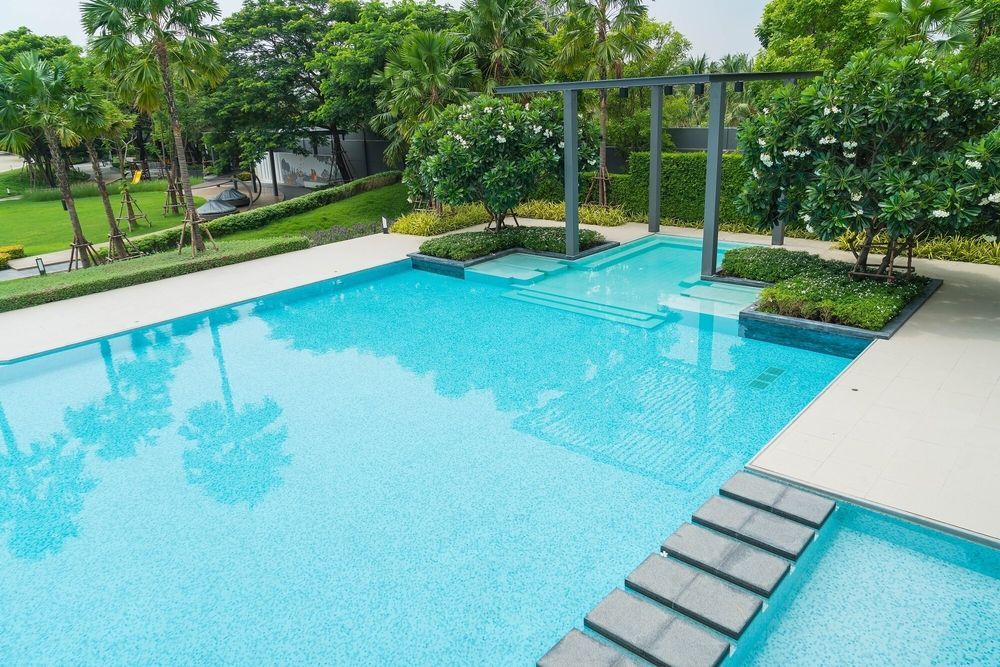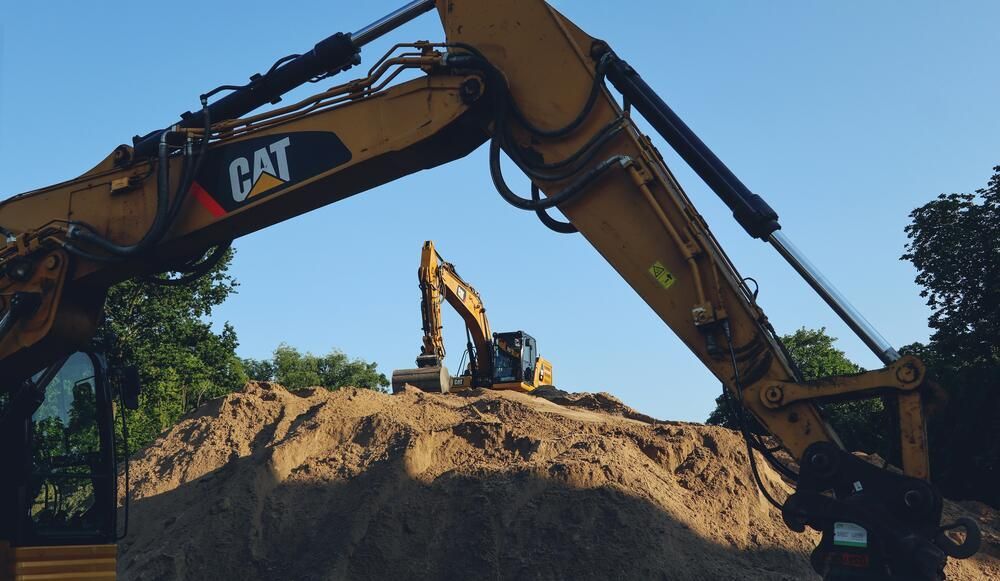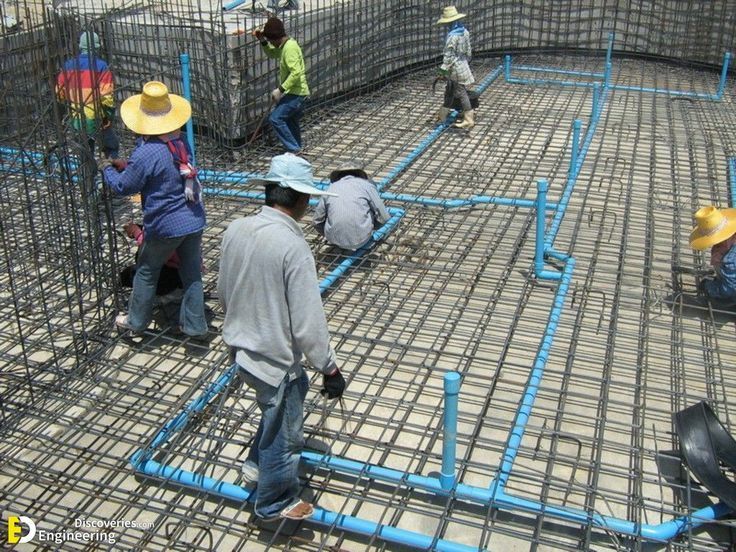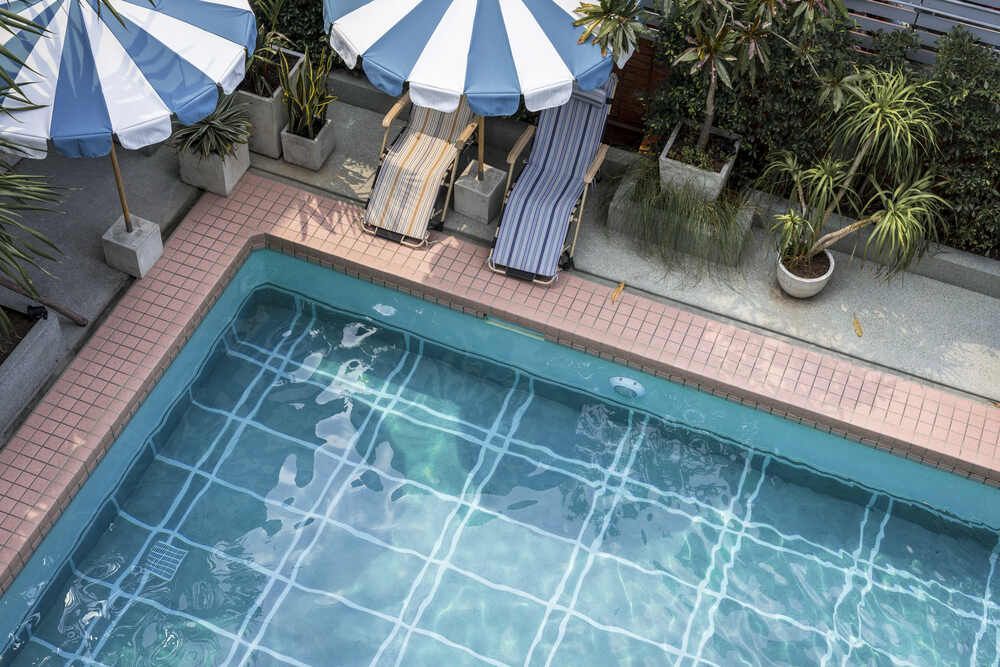How to Choose the Best Material for Your Inground Pool: Concrete, Vinyl, or Fiberglass?

Owning an inground pool can transform your backyard into a private oasis, offering a perfect spot for relaxation, exercise, and entertainment. However, deciding on the best material for your pool can be challenging, given the variety of options available. The three primary materials—concrete, vinyl, and fiberglass—each come with unique characteristics, benefits, and drawbacks. This blog will guide you through the selection process, helping you make an informed decision that suits your needs and preferences.
What is an Inground Pool?
Around 8% of US homes own a swimming pool, with inground pools accounting for 59% of residential pools in the US. The preference for inground pools may be due to their permanent features of being installed in the ground, creating a seamless and aesthetically pleasing addition to a backyard.
Unlike above-ground pools, which are temporary and often less durable, inground pools are constructed using a variety of materials and techniques to provide a long-lasting and visually appealing water feature. The process of inground
pool installation involves excavating a hole to the desired dimensions, installing the pool structure, and finishing with decking and landscaping to integrate the pool into the surrounding environment. Inground pools offer numerous benefits, including increased property value, customizable designs, and enhanced outdoor living spaces, making them a popular choice for homeowners looking to create a personal oasis.
3 Types of Materials Used for Inground Pool Installation
When embarking on an inground pool installation, understanding the different materials available is crucial. The three primary options for inground pool installation—concrete, vinyl, and fiberglass—each offer unique benefits and drawbacks that impact performance, cost, and maintenance. Here’s an in-depth look at each material to help you make an informed decision.
1. Concrete Pools
Concrete pools, also known as gunite or shotcrete pools, are a favored choice for homeowners seeking a highly customizable and durable inground pool installation. These pools are constructed by spraying a mixture of concrete and sand onto a reinforced steel framework. Once the concrete cures, it forms a solid, robust structure that can be shaped into any design you desire.
Advantages
- Customization: Concrete pools can be molded into virtually any shape or size, allowing for creative and unique inground pool installations.
- Durability: Concrete pools are incredibly durable and can last for decades with proper maintenance.
- Versatility in Finishes: Concrete pools are compatible with various finishes, including plaster, pebbles, or tile, providing additional aesthetic options.
- Strength: Their robust construction makes them suitable for areas with challenging soil conditions or significant temperature fluctuations.
Disadvantages
- High Initial Cost: Concrete pools come with a higher initial cost compared to vinyl and fiberglass pools.
- Lengthy Installation: The inground pool installation process for concrete pools is lengthy, often taking several months.
- Maintenance Intensive: Regular maintenance, including weekly brushing to prevent algae buildup and resurfacing every 10 to 15 years, is required.
- Algae and Chemical Use: The porous surface can harbor algae, necessitating higher chemical usage and frequent cleaning.
2. Vinyl Pools
Vinyl pools feature a flexible liner made from durable vinyl material that fits into a custom-built frame made of steel, aluminum, or polymer. These liners are available in various patterns and colors, providing some degree of customization for your inground pool installation.
Advantages
- Lower Initial Cost: Vinyl pools are typically more affordable to install than concrete or fiberglass pools.
- Smooth Surface: The smooth, non-abrasive surface of vinyl pools makes them comfortable to swim in.
- Quick Installation: The inground pool installation process for vinyl pools is relatively quick, often taking just a few weeks.
- Customizable Liners: Vinyl liners come in various patterns and colors, offering some degree of aesthetic customization.
Disadvantages
- Shorter Lifespan: Vinyl liners generally need to be replaced every 7 to 10 years.
- Vulnerability to Damage: The liners can be prone to punctures and tears, requiring careful handling and maintenance.
- Long-term Costs: Over time, the cost of replacing the liners can add up, making vinyl pools potentially more expensive in the long run.
- Sensitive to Sharp Objects: Vinyl liners can be easily damaged by pets or sharp objects, necessitating extra caution.
3. Fiberglass Pools
Fiberglass pools are pre-molded and pre-fabricated pools made from fiberglass-reinforced plastic. These pools are manufactured in a factory and delivered to the installation site in one piece, simplifying the inground pool installation process. The smooth gel-coat surface of fiberglass pools resists algae growth and requires minimal maintenance.
Advantages
- Quick Installation: Fiberglass pools offer quick installation, often taking just a few days to install once the site is prepared.
- Low Maintenance: The non-porous surface reduces the need for frequent cleaning and chemical treatments.
- Durability: Fiberglass pools are highly durable and resistant to algae, making them a long-lasting option.
- Compatibility with Salt Systems: Fiberglass pools do not interact adversely with salt, ensuring long-term durability and low maintenance costs.
- Attractive Finish: Advances in fiberglass pool designs have led to aesthetically pleasing options that can enhance the beauty of your backyard.
- Resale Value: Fiberglass pools can add value to your property, making them an attractive feature for potential homebuyers.
Disadvantages
- Limited Customization: The pre-fabricated nature of fiberglass pools means fewer options for customization in terms of shape, size, and depth.
- Higher Initial Cost: Although more affordable in the long run, the initial cost of fiberglass pools can be higher than that of vinyl pools.
- Transportation and Installation Challenges: Transporting and installing a large fiberglass pool can be difficult, especially in areas with limited access.
- Size Limitations: Fiberglass pools may not be suitable for homeowners desiring very large or deep pools due to the limitations in pre-molded designs.

6 Factors to Consider When Choosing Pool Material
1. Budget
When choosing the material for your inground pool installation, your budget is likely one of the most significant factors. It's essential to consider both the initial installation costs and the long-term expenses associated with maintenance and repairs.
Initial Cost vs. Long-term Cost
Concrete pools typically have the highest initial cost, ranging from $50,000 to $100,000 due to the extensive labor and materials required for inground pool installation. Vinyl pools are generally the least expensive to install at $28,000 to $40,000, making them an attractive option for those with tighter budgets. Fiberglass pools fall somewhere in between in terms of initial cost, with $28,000 to $60,000 worth of installation fees. However, long-term costs can vary significantly.
- Concrete Pools: Require regular maintenance and occasional resurfacing, which can add up over time.
- Vinyl Pools: May have a lower initial cost, but the expense of replacing liners every 7 to 10 years can increase the overall cost.
- Fiberglass Pools: While more expensive initially, tend to have the lowest long-term maintenance costs due to their durable, low-maintenance surfaces.
2. Installation Time
The timeframe for your inground pool installation can also influence your decision. Installation time varies significantly between concrete, vinyl, and fiberglass pools.
Timeframe for Each Material
If you're looking to have your pool ready for use quickly, fiberglass or vinyl may be the better option. A quicker installation minimizes disruption to your yard and allows you to enjoy your pool sooner.
- Concrete Pools: Take the longest to install, often requiring several months due to the extensive construction process.
- Vinyl Pools: Have a faster installation time, typically taking a few weeks.
- Fiberglass Pools: Offer the quickest installation, usually just a few days once the site is prepared.
3. Design and Customization
The ability to customize your pool's design to fit your aesthetic preferences and space requirements is another critical factor in inground pool installation.
Design Flexibility
- Concrete Pools: Offer the most flexibility in design, allowing for virtually any shape, size, and depth. This makes them ideal for homeowners who want a unique or complex pool design.
- Vinyl Pools: Offer some degree of customization with various liner patterns and colors, though they are limited by the pre-fabricated shapes available for the liners.
- Fiberglass Pools: Have the least design flexibility, as they are pre-molded in specific shapes and sizes. However, manufacturers offer a range of models to choose from, catering to different preferences.
4. Maintenance and Durability
Considering the maintenance requirements and durability of each pool material is crucial for ensuring your inground pool installation remains in good condition for years to come.
Maintenance Requirements
Understanding the maintenance demands of each material can help you choose the best option for your inground pool installation, especially if you prefer a low-maintenance pool.
- Concrete Pools: Require the most maintenance, including regular cleaning, chemical balancing, and resurfacing every 10 to 15 years.
- Vinyl Pools: Need regular cleaning and chemical balancing, with the added responsibility of replacing the liner periodically.
- Fiberglass Pools: These are the easiest to maintain, thanks to their smooth, non-porous surface that resists algae growth and requires fewer chemicals.
Expected Lifespan and Durability
Durability is a key consideration in your inground pool installation, as it affects the pool's longevity and the frequency of repairs and replacements.
- Concrete Pools: Are incredibly durable and can last for decades with proper maintenance.
- Vinyl Pools: Have a shorter lifespan due to the liner, which needs replacement every 7 to 10 years.
- Fiberglass Pools: Are also highly durable, with many lasting 25 years or more with minimal maintenance.
5. Climate and Environmental Considerations
The climate and environmental conditions in your area can also impact the performance and longevity of your inground pool installation.
Impact of Local Climate
Understanding how your local climate affects each pool material can help you make a more informed decision for your inground pool installation.
- Concrete Pools: These are well-suited for various climates but can be susceptible to cracking in areas with significant temperature fluctuations.
- Vinyl Pools: Perform well in most climates but can be prone to damage in areas with harsh winters.
- Fiberglass Pools: Are durable and resistant to temperature changes, making them suitable for various climates.
Environmental Factors
Choosing an environmentally friendly option for your inground pool installation can contribute to sustainability efforts and reduce your ecological footprint.
- Concrete Pools: Require substantial resources and energy for construction.
- Vinyl Liners: Involve plastic materials that may not be environmentally friendly.
- Fiberglass Pools: Have a relatively low environmental impact due to their long lifespan and minimal maintenance requirements.
6. Safety and Comfort
The safety and comfort of your pool's surface can affect your overall swimming experience during and after the inground pool installation.
Surface Texture and Safety
- Concrete Pools: Have a rough surface that can be abrasive, potentially causing scrapes and scratches.
- Vinyl Pools: Have a smooth, non-abrasive surface, making them comfortable to swim in.
- Fiberglass Pools: Also have a smooth, gel-coat surface that is comfortable and safe, reducing the risk of injuries.
How to Choose the Right Pool Contractor for Your Inground Pool Installation
Selecting the right contractor for your inground pool installation is as important as choosing the pool material. A skilled and experienced contractor ensures that the pool is installed correctly, on time, and within budget. By following these steps, you can find a contractor who not only meets your requirements but also ensures a smooth and successful inground pool installation.
1. Research and Referrals
Start by conducting thorough research. Ask friends, family, and neighbors for referrals who have had inground pool installations. Personal recommendations can provide valuable insights into a contractor’s reliability and quality of work.
2. Check Credentials
Verify the contractor’s credentials. Ensure they are licensed, insured, and certified by relevant industry associations. A licensed contractor adheres to industry standards and local building codes, which is crucial for a successful inground pool installation.
3. Review Past Projects
Ask the contractor for a portfolio of past inground pool installations. Reviewing their previous work helps you gauge their expertise and style. Look for pools similar to what you envision for your backyard to see if their craftsmanship meets your standards.
4. Read Reviews and Testimonials
Online reviews and testimonials can provide additional perspectives on the contractor’s reputation. Websites like Yelp, Google Reviews, and the Better Business Bureau are good places to start. Pay attention to comments about their timeliness, professionalism, and customer service in the context of inground pool installation.
5. Obtain Multiple Quotes
Get detailed quotes from at least three different contractors. Ensure each quote outlines the scope of work, materials, labor costs, and the projected timeline for the inground pool installation. Comparing quotes helps you understand the market rate and identify any outliers.
6. Ask About Warranties and Maintenance
Inquire about the warranties offered on the workmanship and materials. A reputable contractor should provide warranties that cover potential issues post-installation. Additionally, discuss the maintenance services they offer and their availability for ongoing support after the inground pool installation.
7. Communication and Professionalism
Evaluate the contractor’s communication style and professionalism. A reliable contractor should be responsive, transparent, and willing to answer all your questions. Good communication is key to ensuring a smooth inground pool installation process.
8. Visit Ongoing Projects
If possible, visit one of the contractor’s current job sites. Observing their work environment can give you an idea of how they manage their projects and interact with clients. This firsthand experience can be invaluable in making your decision.
9. Finalize the Contract
Once you’ve chosen a contractor, ensure all terms are clearly defined in a written contract. The contract should include details about the inground pool installation timeline, payment schedule, materials used, and any agreed-upon custom features. Both parties should sign the contract to formalize the agreement.

Frequently Asked Questions
How customizable are different inground pool materials?
Customization options vary significantly among pool materials. Concrete pools offer the most flexibility, allowing for virtually any shape, size, and depth. Vinyl pools provide some customization through various liner patterns and colors but are limited by pre-fabricated shapes. Fiberglass pools, although limited in shape and size due to their pre-molded nature, offer several pre-designed models to choose from.
What are the aesthetic differences between inground pool materials?
The aesthetic appeal of your pool material can greatly impact your backyard's overall look. Concrete pools can be finished with various materials such as plaster, pebble, or tile, offering a wide range of colors and textures. Vinyl pools offer customizable liner patterns and colors but may look less upscale compared to other materials. Fiberglass pools have a smooth, glossy finish and come in various colors, providing a sleek and modern look.
How do different materials affect the pool’s water quality?
The material of your inground pool can influence the water quality. Concrete pools can harbor algae in their porous surfaces, requiring more frequent chemical treatments to maintain water clarity. Vinyl and fiberglass pools, with their non-porous surfaces, are less prone to algae growth, making it easier to keep the water clean and clear with less chemical usage.
Are certain pool materials better for specific pool features?
Certain pool materials are more suitable for incorporating specific features. For instance, concrete pools are ideal for adding custom features such as waterfalls, tanning ledges, and intricate shapes. Vinyl pools can accommodate features like steps and benches within the limitations of their liners. Fiberglass pools often come with pre-formed features such as built-in steps and benches, but customization is limited.
How do different pool materials handle ground movement and soil conditions?
Ground movement and soil conditions can affect the stability of your inground pool. Concrete pools are highly durable but can crack in areas with significant ground movement. Vinyl pools, with their flexible liners, are more forgiving to slight ground shifts. Fiberglass pools, due to their one-piece construction, can flex slightly and are generally resistant to ground movement, making them suitable for various soil conditions.
Dive into Excellence with FJV Construction’s Reliable Inground Pool Installation
FJV Construction is the go-to expert in inground pool installation in Danbury, CT. With a sterling reputation for transforming backyards into luxurious oases, FJV Construction offers unmatched expertise in installing concrete, vinyl, and fiberglass pools. Our team combines local knowledge with industry-leading techniques to ensure your pool is built to perfection.
Our commitment to quality and customer satisfaction has made us the preferred choice for homeowners in
Danbury, CT, seeking durable and stunning inground pool installations.
Choose FJV Construction for a seamless, professional, and enjoyable pool-building experience that will exceed your expectations in Danbury, CT.
Our Info
Monday to Friday from 7 am to 6 pm
Saturdays from 8 am to 5 pm
We Accept Cash and Checks
LOCATION
We Cover 80 Miles around Bethel,
Danbury, and Brookfield
Bethel, Connecticut 06801
Danbury, Connecticut 06810
Brookfield, Connecticut 06804
Navigation
Copyright FJV Construction, All Rights Reserved



